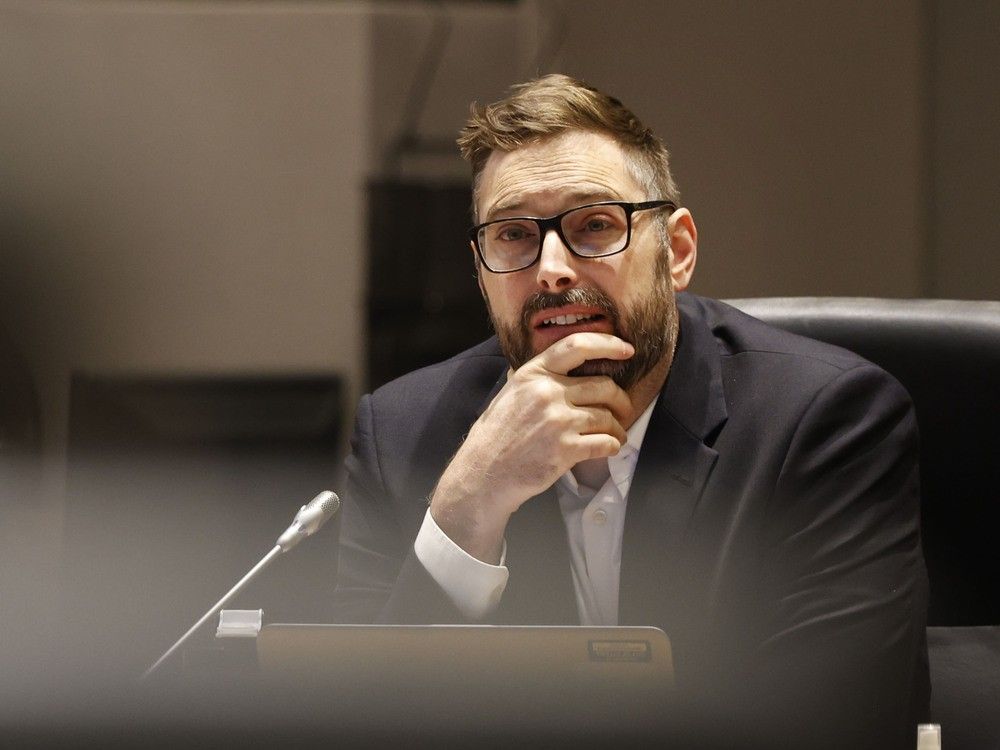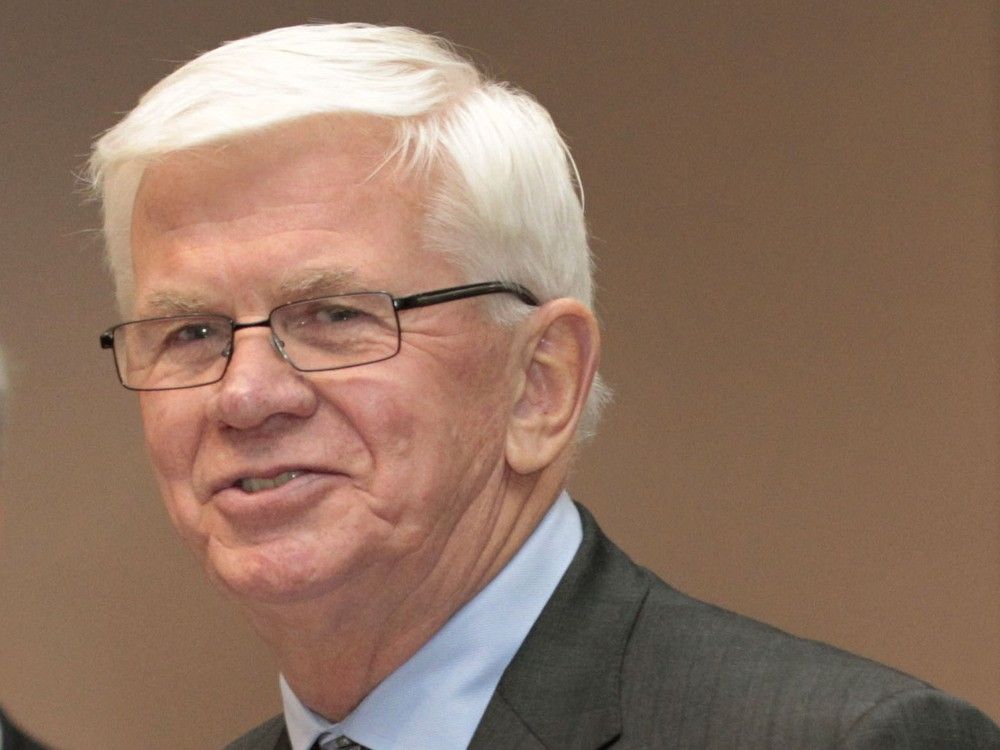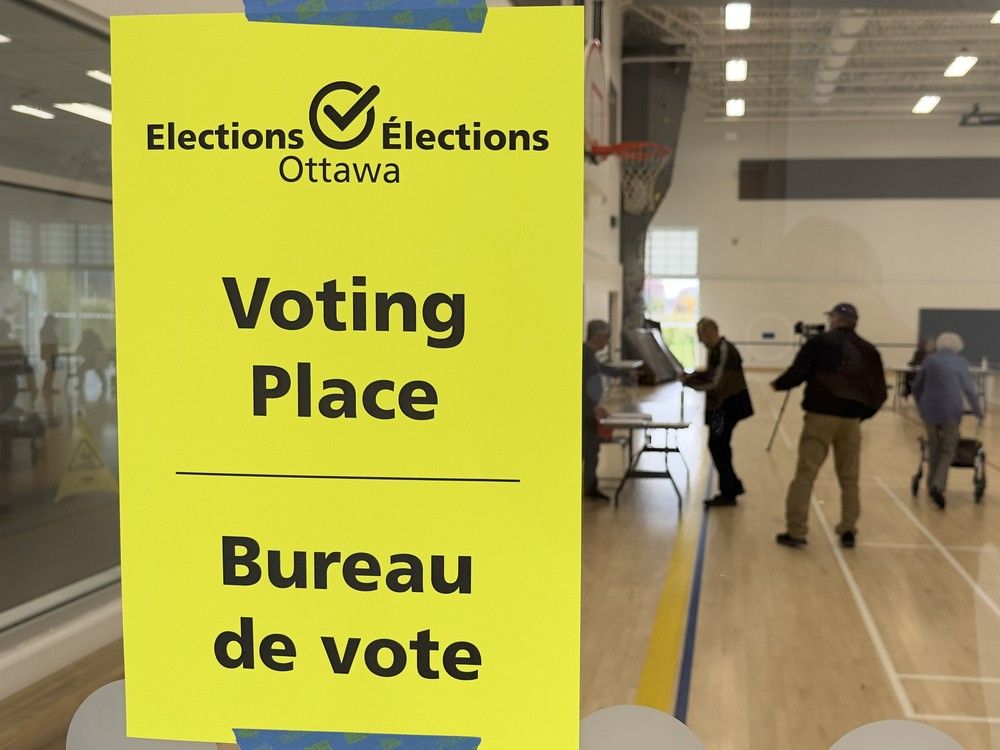Should a $310.98 difference between campaign expenses filed and the current market cost as determined by auditors be treated as an innocent mistake or a threat to electoral fairness?
On Tuesday, Ottawa’s election compliance audit committee received an audit of the 2022
campaign spending of Capital ward Coun. Shawn Menard
. The third-party audit found a $310.98 difference in how much Menard claimed for campaign signs he had saved from the 2018 election and their 2022 value.
Is $310.98 small potatoes compared to the cost of an audit? Not according to John Pappas, a lawyer representing Edward (Ted) Phillips, a retired developer and private citizen who initiated the complaint under the Ontario’s Municipal Elections Act.
“The issues arising from the report indicate that the candidate had an advantage over other candidates because of those pre-existing campaign materials, and the fact they were used in the campaign was hidden from public scrutiny,” Pappas told the committee. “They were not reported in the financial statements, and this threatens to hamper public confidence in the electoral process.”

Menard didn’t deny
the audit’s findings
, which probed, among other things, the costs of screws, wooden stakes, zip ties and re-used election signs. But he argued there were no “significant irregularities” and no public interest in taking the matter further.
Here’s how a $310.98 discrepancy can lead to a long, costly audit process and even prosecution and why some contend there should be leeway before going down that path.
Q: What is a compliance audit committee and what are its responsibilities?
A: Under Ontario’s Municipal Elections Act, every municipality and school board must appoint a compliance audit committee, which is responsible for reviewing and making decisions on all applications for campaign finance audits. Any resident eligible to vote in the election may apply for a compliance audit if they believe a candidate has contravened election finance rules.
The complaint must be in writing and set out the reasons, and it must be submitted to the municipal clerk who conducted the election within 90 days of the deadline for filing campaign financial statements.
The compliance audit committee considers the application and decides whether to grant or reject it.
However, even if the committee decides to reject the application, that’s not necessarily the end of it. A complainant may appeal the committee’s decision to the Ontario Superior Court of Justice within 15 days. That was what happened in Menard’s case.
If the committee or the court grants the application, an auditor is appointed. The auditor is entitled to access all campaign financial records and then produces a report that is considered by the committee.
If the report concludes there is an “apparent contravention” of the Municipal Elections Act, the committee decides whether to commence legal action.
Q: What are the potential penalties and who decides?
A: The committee doesn’t set penalties. Only the courts can do that.
Penalties can be severe. If a judge finds that a candidate knowingly committed an offence, the court can choose one or a combination of penalties including a fine of as much as $25,000, ineligibility to vote or run in the next general election, up to six months in prison and forfeiture of elected office.
Ottawa’s election compliance audit committee voted not to prosecute Menard and rejected Pappas’ submission that the veteran candidate should be held to a different standard. The committee agreed with the auditor’s conclusion that there was an apparent violation of the Municipal Elections Act, but considered it to be too small to be considered.
This was not the first time the committee had voted against commencing legal proceedings against a candidate. In September 2024, the committee
decided not to commence proceedings
against Osgoode ward candidate Doug Thompson over election finances, including undervaluing re-used election signs.
Q: Should the amount of the discrepancy matter? Is there a difference between $300 and $3,000?
A: Both sides — those who urge strict compliance and those who say there should be leeway — say the public interest must be served.
Pappas contended that Menard was not a political newbie and should have known better. By failing to accurately report campaign expenses, Menard undermined public confidence in the electoral process and threatened the transparency, accountability and fairness objectives set out in the Municipal Elections Act, Pappas argued.
“We’re dealing with an incumbent candidate who has experience running in multiple municipal elections, and, with this experience, the public would have higher expectations on a candidate,” Pappas told the committee.
Stéphane Émard-Chabot, a former Ottawa city councillor and lawyer who represented Thompson, said he could see how the democratic process would be jeopardized if a financial filing had significant problems.
But he also argued that would-be candidates would be discouraged from running for office if they felt they would be under intense scrutiny and possibly be prosecuted over campaigns largely run by volunteers.
There’s also the question of the waste of taxpayers’ money over frivolous complaints, he said. Technically speaking, a single complainant may make numerous complaints and the city could be left paying for those audits, Émard-Chabot said.
“All you need is one cranky citizen to create an awful lot of work for everybody,” he said.
“The objectives of the (Municipal Elections) Act are important, but you are setting the bar at perfection. No one is perfect. Things will get lost and receipts will go missing.”

In an interview, Thompson said he was out-of-pocket “quite a bit” for legal representation after he became the subject of the complaint. Others might not have the resources to do that, he said.
“It’s pretty scary when you know you’re going to audit. Then you know they’re going to go through everything with a fine-tooth comb,” Thompson said.
“I understand the importance of making sure elections are fair. The candidates have to be treated fairly as well.”
Q: The cost of Thompson’s audit was said to be over $84,000. Is that how much third-party audits cost taxpayers?
A: The City of Ottawa won’t confirm the actual cost at this point. Staff will report back to city council on the final costs of the 2022-2026 election compliance audit committee once all proceedings referred to the committee have concluded and their related costs have been finalized, city clerk Caitlin Salter-MacDonald said in a statement.
Q: Why is compliance defined so strictly?
A: The rules around whether to audit a complaint have been interpreted differently by courts in different Ontario jurisdictions, Émard-Chabot said.
In the Menard and Thompson cases, the court decided that, if there was a discrepancy, there was no discretion and the filings must be audited, he said.
However, other municipalities, including Toronto and Hamilton, have handled it differently, he said.
If it warrants an investigation, it makes more sense for the compliance committee to make judgment calls, said Émard-Chabot, who argued that audit committees were administrative tribunals and they had powers to make calls around matters such as how close the candidate came to their spending limit and whether an error was indicative of a broader pattern.
“Everything turns on how you view the intent of Queen’s Park when they transferred authority (for election compliance) from elected officials and placed them in the hands of independent compliance committees,” Émard-Chabot said.
“The Ottawa interpretation followed the old rules. Toronto, Hamilton and some judges take the other view: that the change of jurisdiction and placing it into the hands of an independent body means that body has to make a judgment call.”
That could change in one of two ways, with either a clarification of the law or someone taking the matter to the Ontario Court of Appeal to decide it once and for all, Émard-Chabot said.
Q: Is this the end of 2022 election audits?
A: The committee decided in August 2024 to
take Horizon Ottawa to court
for apparently violating campaign finance rules. According to Tom Ledgely, Horizon Ottawa’s co-ordinator, the organization has not been notified of a court date.
Meanwhile, there’s another avenue and plenty of time left for anyone who does not want to or who isn’t able to apply through the election compliance audit committee: A complainant may also commence legal action on their own. With reference to the 2022 municipal election, that prosecution must be commenced before Nov. 15, 2026, according to the province.
With files from Paula Tran
Our website is your destination for up-to-the-minute news, so make sure to bookmark our homepage and sign up for our newsletters so we can keep you informed.
Related
- Ottawa city council passes contentious 2026 budget directions
- PSAC pauses court challenge over remote work pending policy grievance



